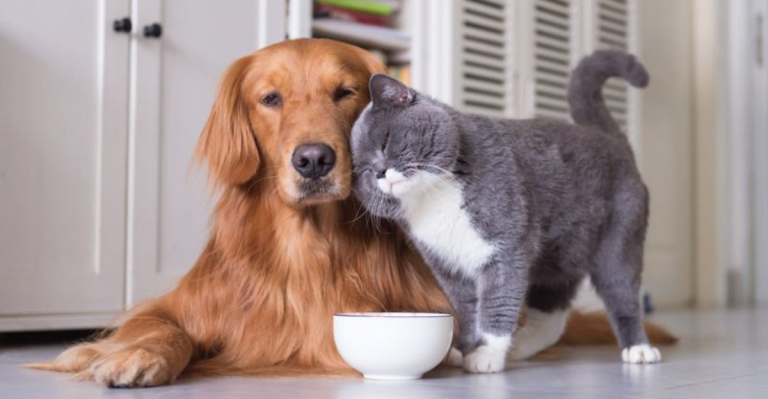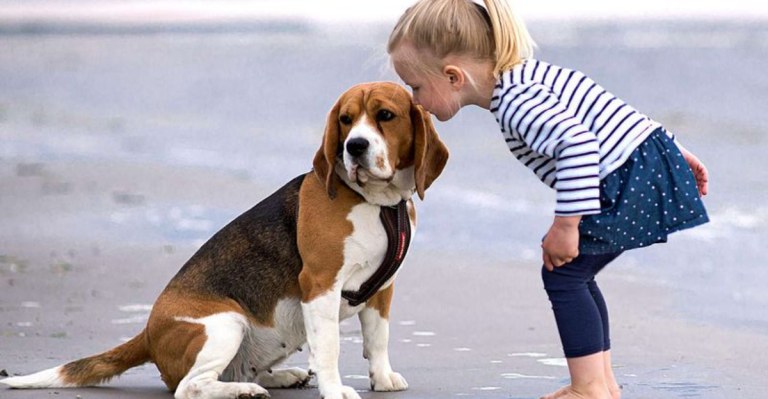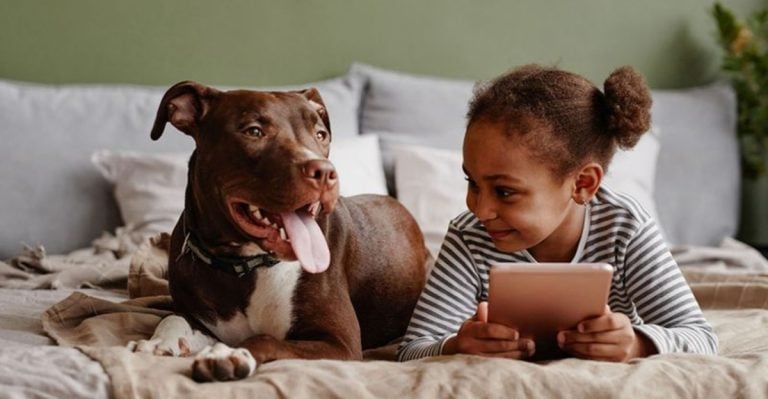15 Dog Breeds That Just Don’t Get Along With Other Dogs
Some dogs are born to be social butterflies, wagging their tails at every pup they meet at the park. But others? Not so much.
They might snarl, bark, or flat-out ignore other canines like they’ve just walked into their sworn enemy’s territory.
Whether it’s due to instinct, breeding, or just plain attitude, certain breeds simply don’t play well with others. That doesn’t mean they’re bad dogs—it just means they need specific environments, strong leadership, and a little more one-on-one love.
And if you’re hoping for a household filled with pack harmony, these particular breeds might make you think twice.
Of course, training and socialization can go a long way—but there are dogs that just prefer to be the center of attention, without any four-legged competition.
Some were bred to work alone, hunt solo, or guard territory without a team. Others are just naturally dominant or aloof when another dog enters their space.
This article isn’t about judging these pups—it’s about understanding them. If you’ve got a lone-wolf dog or you’re considering adopting one, knowing their potential dog-on-dog dynamics is crucial.
The last thing anyone wants is a surprise showdown during a peaceful neighborhood walk.
From pint-sized firecrackers to stoic giants, the breeds on this list are often happiest as the only dog in the home—or with very carefully chosen companions. And hey, some of them adore their humans so much, they don’t really care for anyone else.
Loyal? Absolutely. Sociable with other dogs? Not always.
1. Chihuahua
Don’t let the size fool you. Chihuahuas are notoriously feisty and can be extremely territorial, often barking or snapping at larger dogs they see as threats. Despite their small stature, they possess a mighty personality.
Chihuahuas have long been known for their loyalty to their owners, which often translates into protectiveness.
Their bold nature can sometimes be a surprise to those unfamiliar with the breed. These pint-sized pups have an innate desire to stand their ground, making them less than friendly with unfamiliar dogs.
Early socialization can help, but their natural inclination is to be wary of others.
Their history as ancient companions to Aztec nobility might explain their regal yet defensive demeanor. They truly embody the “big dog in a small body” archetype, with attitudes that match their larger counterparts.
2. Akita
These powerful, independent dogs are famously aloof and often prefer the company of humans over other canines.
They’re known to be dog-aggressive, especially with those of the same sex. Akitas have a rich heritage as Japanese guard dogs, bred to be protective and discerning.
Their striking appearance is matched by a confident demeanor, often leading to misunderstood interactions with other dogs. Akitas are best suited to homes where they can be the star canine.
Training and socialization can mitigate some aggressive tendencies, but their instincts often prevail.
Their loyalty to family is paramount, and they tend to be one-person dogs, devoting themselves entirely to their chosen human.
Despite their aloofness, they are incredibly loving and protective of their families, making them exceptional companions when properly managed.
3. Jack Russell Terrier
High energy and a strong prey drive make Jack Russells reactive and scrappy with other dogs, especially in small or high-stimulation environments.
These terriers are known for their spirited nature, often ready to chase anything that moves. Their intelligence and agility make them adept at outsmarting their canine companions.
Jack Russells are often described as “big dogs in small bodies,” always ready for action.
This breed’s history as a hunting dog contributes to their assertive nature. In multi-dog households, they may often try to establish dominance, leading to potential skirmishes.
Early socialization and training are crucial to manage their interactions with other dogs. Despite their occasional scrappiness, they are loving and devoted to their human families, providing endless entertainment and affection.
4. Dachshund
Originally bred for hunting, Dachshunds often have bold personalities and can show dominant or aggressive behavior toward unfamiliar dogs.
Their long bodies and short legs belie their fierce nature, as these dogs have a strong prey drive. Known for their bravery, they aren’t afraid to stand their ground.
These “wiener dogs” are often independent thinkers, which can lead to stubbornness, especially in social situations.
Dachshunds thrive in environments where their hunting instincts are challenged, but they require supervision around other dogs.
Their inquisitive nature makes them excellent explorers, always on the hunt for something interesting. Their origin as badger hunters in Germany adds to their feisty character.
Interaction with other dogs should be monitored to prevent potential altercations.
5. Shar Pei
This wrinkly and suspicious breed isn’t always keen on socializing with other dogs, especially if they feel their territory or humans are threatened.
Shar Peis are known for their distinctive appearance and wary nature, often preferring the company of their families.
Their ancient heritage as guard dogs in China contributes to their protective instincts.
These dogs are incredibly loyal but can be indifferent or aggressive toward strangers, both human and canine. Socialization is key to managing their interactions with other dogs.
Shar Peis have a unique look with their deep-set wrinkles and blue-black tongues, making them unmistakable. While they can be loving family companions, they require careful management in multi-dog environments.
Their tendency to assert dominance can lead to challenges when meeting new dogs.
6. Alaskan Malamute
Malamutes are pack animals but may not play nice with dogs outside their “pack.” Same-sex aggression is especially common.
These majestic dogs have a history of being sled pullers, known for their strength and endurance. Their wolf-like appearance matches their independent nature.
Alaskan Malamutes thrive in environments where they can exercise and explore, but their strong-willed character can lead to conflicts with other dogs. They form deep bonds with their human families and prefer familiar company.
To minimize aggressive tendencies, early socialization is essential. Malamutes are best suited to experienced dog owners who can provide strong leadership and structure.
Despite their challenges with other dogs, they are incredibly loving and loyal to their families, offering companionship and adventure.
7. Doberman Pinscher
Dobies can be overly protective and territorial, sometimes viewing other dogs as a threat unless extensively socialized from a young age.
Their sleek, muscular build is a reflection of their power and agility. Known for their intelligence, Dobermans are often quick learners with a keen sense of alertness.
These loyal companions are often misunderstood due to their protective nature. While they are affectionate with their families, they can exhibit aggressive tendencies towards unfamiliar dogs. Proper training is crucial to managing their interactions.
Doberman Pinschers have a storied history as working dogs, excelling in roles that require vigilance and precision.
Their loyalty and protective instincts make them excellent guardians, but they need careful socialization to ensure harmonious relationships with other canines.
8. Chow Chow
Often described as cat-like in behavior, Chow Chows tend to be aloof and are known for being aggressive toward unfamiliar dogs and animals. Their distinctive lion-like mane and scowling expression often give them an air of regality.
Chow Chows are independent and dignified, preferring a calm environment. They are not naturally social with other dogs and require early socialization to improve their tolerance. Their aloof nature can make them challenging for novice dog owners.
Historically, Chow Chows have been revered in China, where they were bred for guarding and hunting.
Their deep-rooted heritage influences their temperament and behavior. While they can be loving with their families, they demand respect and careful handling in social situations.
9. Scottish Terrier
Bred to hunt independently, Scotties can be headstrong and reactive, especially toward dogs they see as rivals. Their wiry coats and distinctive beards give them an iconic look.
Scotties are known for their relentless determination and strong-willed nature.
These terriers have a storied history, having been bred in Scotland for hunting purposes.
Their independent streak often leads them to make their own decisions, sometimes clashing with other dogs. Early socialization is essential to curb their territorial tendencies.
Despite their challenges, Scottish Terriers are fiercely loyal to their human families. They thrive in environments where their intelligence and bravery are appreciated.
Handling them with patience and understanding can lead to a rewarding companionship.
10. Shiba Inu
These fox-like pups are stubborn, aloof, and often intolerant of other dogs invading their space—especially of the same sex. Shiba Inus boast a spirited personality, often described as “spirited boldness.”
They are confident and headstrong, with a tendency to challenge other dogs.
Shibas have a rich heritage as hunting dogs in Japan, and their independent nature reflects that history.
Their aloofness can be mistaken for indifference, but they are deeply loyal to their families. Socialization from an early age can help manage their interactions with other dogs.
Shiba Inus are known for their “Shiba scream,” a vocalization expressing excitement or frustration. They embody a unique blend of independence and loyalty, making them distinctive companions in the canine world.
11. Australian Cattle Dog
Highly intelligent and bred for control, Cattle Dogs may attempt to dominate or herd other dogs, which rarely goes over well. Known for their boundless energy and work ethic, these dogs thrive in environments where they have a job to do.
Australian Cattle Dogs are bred to herd livestock, and their herding instincts can lead them to “herd” other dogs, causing friction.
Their intelligence and drive make them challenging for inexperienced owners, but rewarding for those who can meet their needs.
These dogs are incredibly loyal and protective of their families, often forming strong bonds with their humans. Early socialization and consistent training are crucial to managing their behavior around other dogs, ensuring a harmonious coexistence.
12. Lhasa Apso
Though small and fluffy, Lhasa Apsos are excellent watchdogs and can be aggressive toward dogs they perceive as a threat. Their luxurious coats and expressive eyes give them an endearing appearance, often belying their strong protective instincts.
Originating from Tibet, Lhasa Apsos were bred as sentinel dogs in monasteries, contributing to their watchful nature. Despite their size, they are courageous and will stand their ground when faced with unfamiliar dogs.
These dogs are devoted to their families, forming strong bonds with their humans. Their independence and alertness make them excellent watchdogs, but socialization is key to managing their interactions with other dogs.
With the right handling, they can be delightful companions.
13. Basenji
Independent and aloof, Basenjis don’t always care for dog-to-dog interaction and may respond poorly if challenged.
These “barkless” dogs are known for their unique vocalizations, similar to yodeling. Their alert, curious nature makes them keen explorers.
Basenjis have a rich history as hunting dogs in Africa, where their keen senses were highly valued. Their independence often leads them to make their own decisions, which can lead to clashes with other dogs.
Early socialization is essential to help them navigate social interactions.
While they may be aloof with other dogs, they are affectionate with their families, providing companionship and entertainment. Basenjis are a unique breed with a distinctive character, cherished by those who appreciate their individuality.
14. Miniature Pinscher
Nicknamed the “King of Toys,” Min Pins often have big personalities and a lack of patience for other dogs’ antics.
Despite their small size, they are confident and assertive, often acting like much larger dogs. Min Pins are lively and spirited, with a fearless demeanor.
These dogs are known for their boundless energy and curiosity, making them adventurous companions.
Their strong-willed nature can sometimes lead to conflicts with other dogs, especially if they feel challenged. Early socialization is important to help them develop good manners.
Miniature Pinschers have a storied history as rat hunters, which contributes to their tenacity and drive. They are devoted to their families, forming strong bonds with their humans.
With the right training and environment, they can be delightful companions.
15. Tosa Inu
Originally bred for dog fighting, Tosas are large, powerful, and require very careful management when around other dogs.
Their commanding presence and calm demeanor make them impressive guardians. Despite their history, they are gentle with their families.
Tosa Inus are known for their loyalty and stoicism, often preferring peace over conflict.
However, their potential for aggression towards other dogs requires experienced handling. Early socialization and training are critical to ensure they coexist peacefully with other canines.
These dogs thrive in environments where their strength and intelligence are respected. They are devoted to their families, forming strong bonds with their humans.
Tosa Inus can be excellent companions for those who understand and appreciate their unique character.





















